Flavor description of Panamanian Poket Rosa Coffee Bean. Introduction to the method of texture grinding of Rosa coffee bean
When it comes to Panamanian rosy summer coffee beans, what comes to mind is the Emerald Manor of Panama? Haha, yes. Panamanian rosy summer coffee beans have their present status and achievements, which can be attributed to the Emerald Manor. Today, Qianjie Coffee will share with you the rosy summer coffee beans from the Emerald Manor of Panama!
The flavor of Panamanian Rosa coffee beans is exquisite floral, citrus and honey flavors.
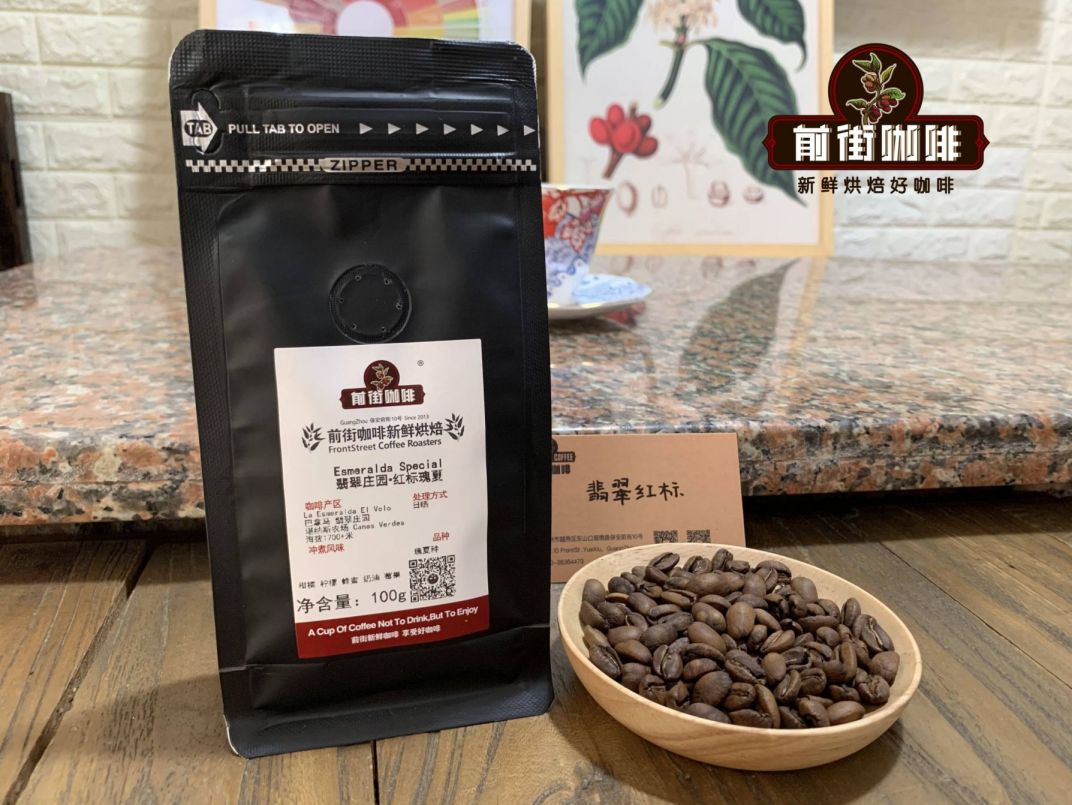
[introduction to Panamanian coffee beans in front street coffee]
Panama is located in Central America, followed by North and South America, bordering Costa Rica and Colombia. The coffee road in Panama can be said to have come all the way with a golden spoon.
As we all know, the Panama Canal was built by the United States and was independently controlled by the United States for some time after it was built. It was the construction of the Panama Canal that caused many American elites to go south at the end of the 20th century, on the one hand, to demand jobs, and on the other to tap business opportunities.
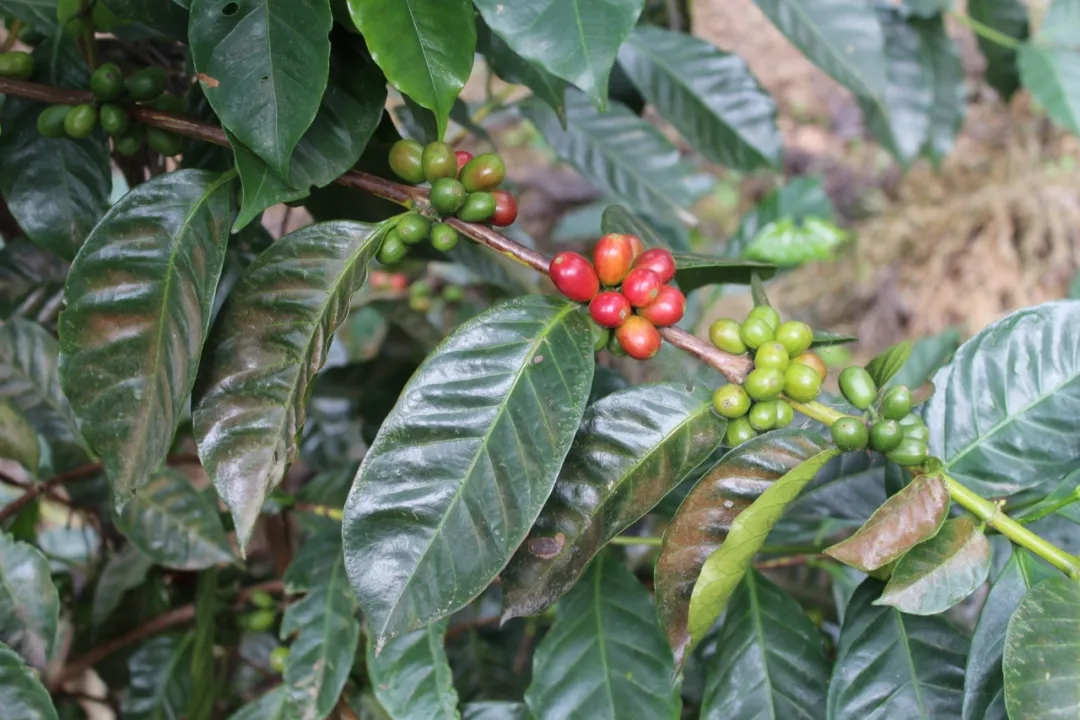
Panamanian rosy summer coffee beans are famous all over the world, and coffee cultivation in Panama revolves around the Chiriki volcano area. One of the most beautiful is the Pokuit producing area, where unique volcanic fertile soil, plenty of water, regular rainfall, dense vegetation and cloud cover nourish coffee trees and produce high-quality coffee beans with rich flavor.
Many different microclimates also contribute to the production of coffee beans with multiple flavors, and the Jade Manor is also located in this producing area. On the other hand, the Walken producing area, which is adjacent to the Bokui special area, has fewer producing areas that have grown high-quality rose summer coffee in recent years.
Front Street Coffee Panamanian Pocket area
Boquete is a town in Chiriqui province, located near the border between Panama and Costa Rica, close to the famous Baru volcano, beautiful scenery, rich soil, climate and soil are very suitable for producing quality coffee. Cool, foggy, mountainous geographical environment creates a unique microclimate, cool climate and frequent fog help slow down the ripening process of coffee fruit, which is similar to high altitude. Qianjie coffee cup tests the coffee beans in this producing area. Coffee flavor can range from cocoa to fruity, with slight acidity.
The microclimate in the Pokuit Highlands is a unique and important resource for boutique coffee in the Pokuit region, which makes the cold air flow in Panama converge above 1600m through the Central Mountains from east to west, thus creating a variety of microclimates in the Pokuit region, making its temperature and rainfall very suitable for plant growth, so the coffee trees planted here are growing very well.
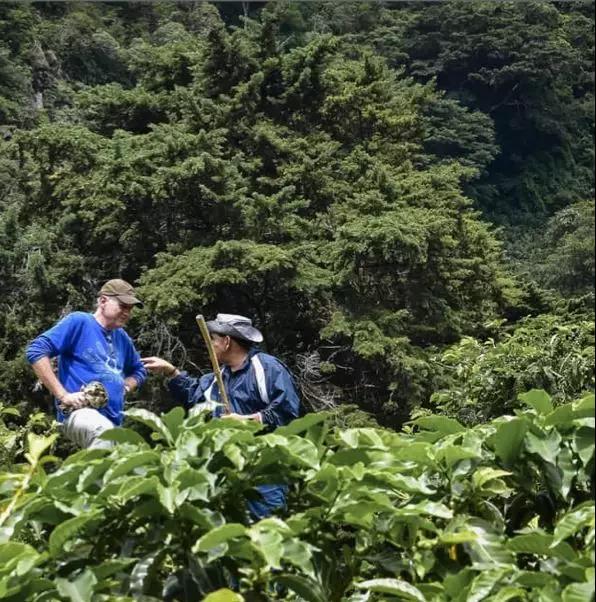
Dr. Renan Esquire, a famous paediatrician in Panama, is not only a pediatrician, but also a nature lover. In 1980 he bought Bajo Mono Farm, the first farm he bought. Dr. Renan Esquire planted many kinds of trees, plants and coffee varieties on the farm and has preserved them to this day. Bajo Mono Farm Coffee Plantation covers an area of 33 hectares and is located in the Chiriki Heights, north of the town of Poquet in the canyon, on the slopes of the Baru volcano, 1400-1550m above sea level.
Bajo Mono is one of the best places to produce high-quality Panamanian coffee because of its volcanic soil, clear fountains, and what locals call the Bajareque climate phenomenon. When the moisture of the Pacific and Atlantic meets, when the wind blows, haze rises in the mountains, and rainbows are often seen, all of which form a unique microclimate. So that the coffee trees in this area can have a better growth environment and quality.
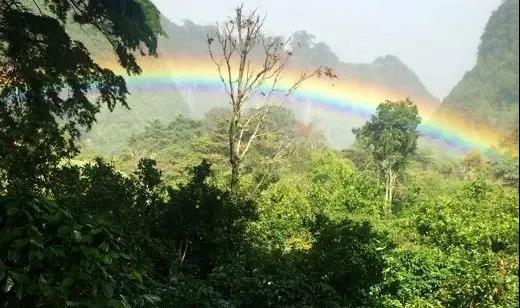
The farm is now owned by StefanArwedMuller, which has been operating Bajo Mono Coffee Farm since 2011 and is committed to further improving the quality of coffee beans and protecting the ecology of the area where the plantation is located. The coffee beans are named Caf é Don Benjie.
Introduction of the representative manor "Emerald Manor" of the Panamanian Pokuit producing area of Qianjie Coffee
In 1964, Rudolph Peterson, an American banker, retired, moved to Panama and bought the emerald estate in Poquet, initially dominated by dairy. Then his son Price resigned as a doctor to help his father run the farm, introduced Kaddura and Kaduai coffee beans in 1987, set up a washing plant in 1994, and has had its own coffee processing plant ever since. In 1996, Haramiyo Manor, which has a superior geographical environment and good flavor of the original coffee varieties, was bought and incorporated into the Jadeite Manor.
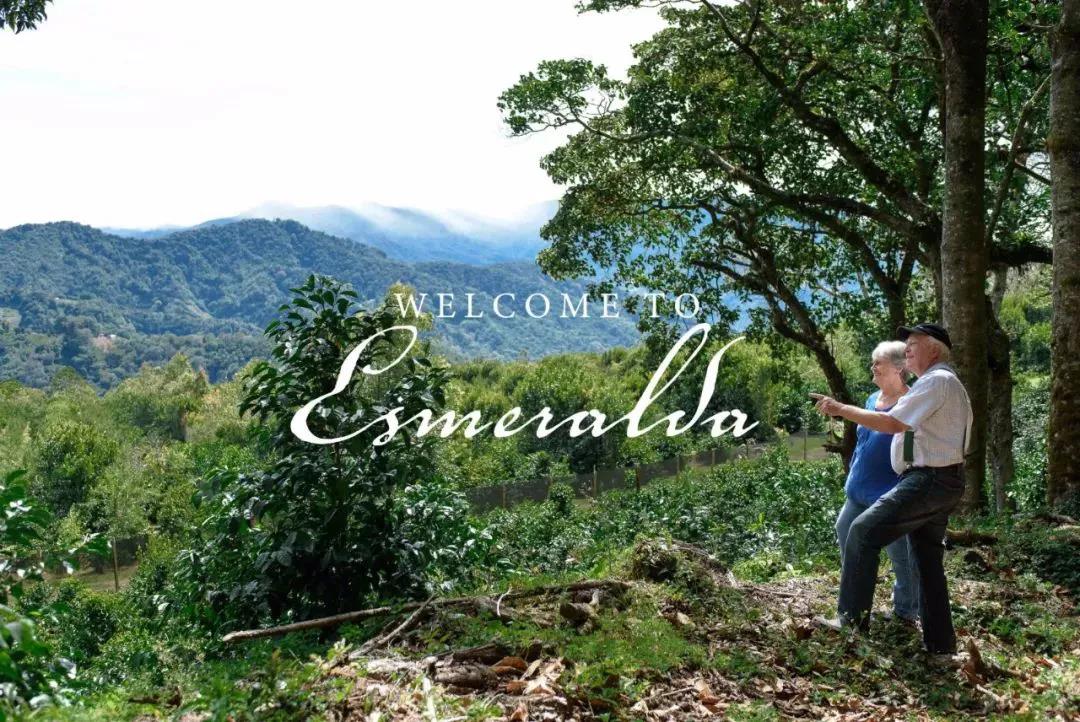
Haramillo can be favored by the Petersons, and it is his original coffee beans with pleasant orange and floral aromas, different from the original flavor of Panamanian coffee. After cup testing of coffee beans in different areas of the garden, it was found that it was an unknown coffee tree born at the top of the manor. because of its low yield, the previous owner only used it as a windbreak tree, but it was excavated by the Petersons and decided to plant and cultivate the coffee trees in the area independently.
After winning the championship of BOP in the Panamanian bean competition in 2004, it was later identified by experts that the coffee bean was a rose summer variety of Ethiopia. Since then, the Peterson family has focused most of its efforts on developing infrastructure to support excellent batch separation and fine processing.
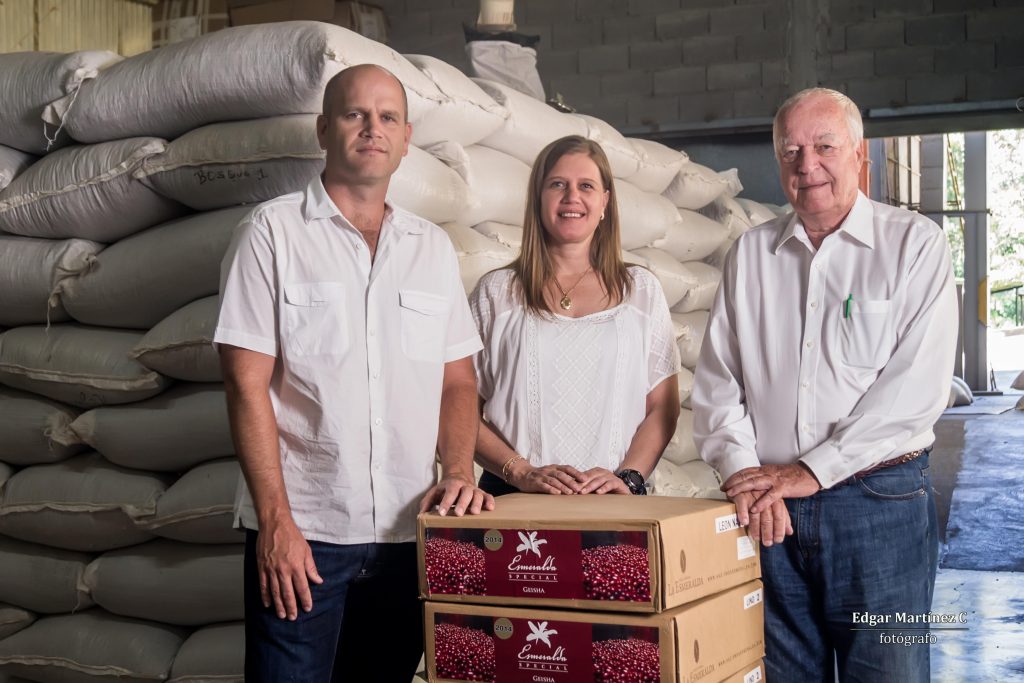
At present, the Emerald Manor mainly has three manors to grow rose summer varieties: veil El Velo, Cannes Vidis Caas Verdes, Haramillo Jaramillo. Haramillo Jaramillo, which has a superior geographical environment and good flavor of the original coffee variety, was bought in 1996. Veil El Velo was acquired by Jade Manor in 2012. Qianjie Coffee believes that the acquisition of a high-altitude manor like Jade Manor was a unique decision at that time, which made it possible for the Jade Manor to occupy a certain position in the coffee industry.
Although the Jade Manor found coffee beans with flavor at the beginning, in order to be accurate, the coffee beans in different areas of the garden were tested, and the planting plots were determined according to the elevation. That's why we now know the red, green and blue summer grades, all of which are graded according to altitude. Qianjie Coffee will explain this part in detail below.
Introduction to the planting plot of rosy summer coffee beans in Qianjie Coffee Panamanian Jade Manor
The jadeite manor is finely divided into three plots: Jaramillo, Canas Verdes and El Velo. Each piece of land will be refined to small plots again.
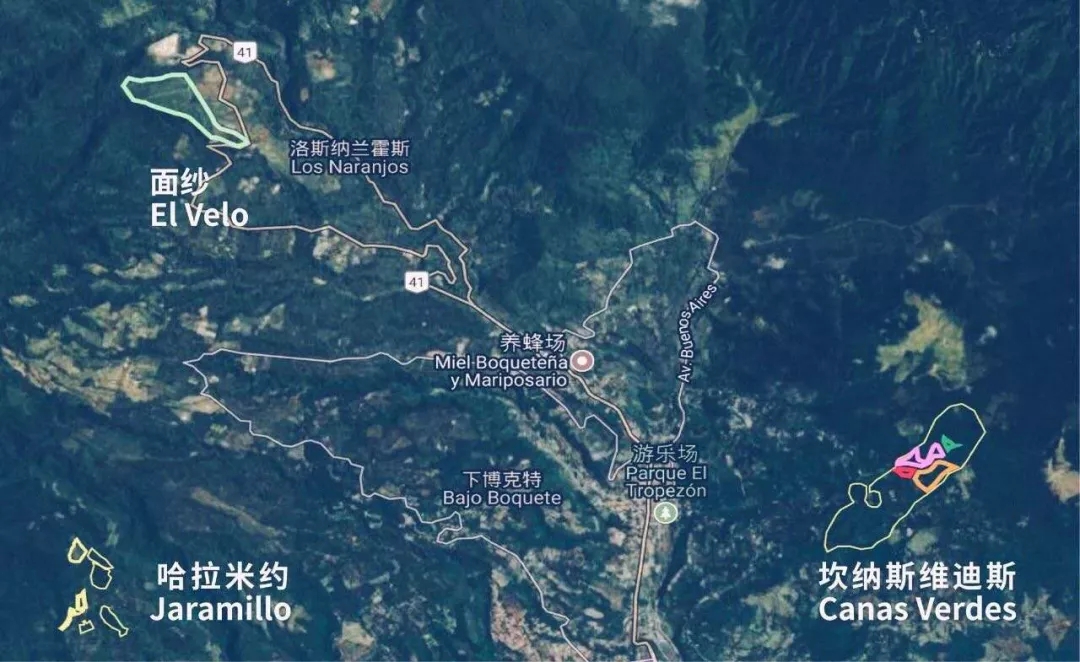
The annual rainfall of Jaramillo is 4000ml, the average temperature in daytime is 19-25 ℃, the average temperature at night is 11-15 ℃, and the average altitude is 1600-1700m. The Haramiyo site is subdivided into five small plots: Mario (Mario), Noria (Ferris wheel), Reina (queen), Bosque (forest) and Buenos Aires (Buenos Aires).
The annual rainfall of Canas Verdes is 3500ml, the average temperature in daytime is 16-23 ℃, the average temperature at night is 10-15 ℃, and the average altitude is 1600-1800m. Cannes consists of nine small plots: Lino (flax), Coronado (coronation), Fundador (founder), Le ó n (Leon), Montaa (peak), Trapiche (sugar), Chinta (urn), Cabaa (cabin) and Tumaco (Tumako).
Veil (El Velo) is the latest purchase of the Jadeite Manor, with an average elevation of 1700-1900m. In addition to planting Rosa and Kaduai, the site also has a small number of other exotic species, such as Laurina, Pakamara, Mocha and SL28. The veil is divided into seven small plots, namely: Guabo, Port ó n (Portal), Durazno (Peach), Higuer ó n (fig tree), Higo (fig), Buena Vista (Buena Vista) and guila (Eagle).
Introduction to Qianjie Coffee, Panamanian Jade Manor Red label and Green label Coffee beans
Red label rose summer coffee beans
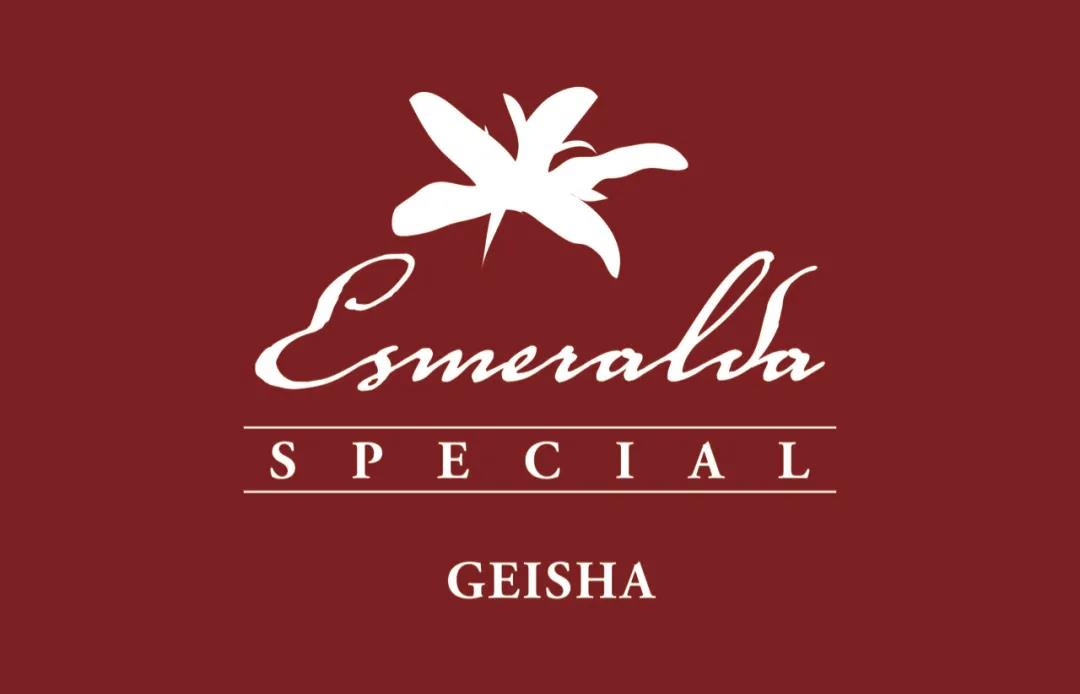
What we commonly call the "red mark". The red label batch of Rosa rugosa has an altitude of 1600-1800 meters and a cup test score of more than 90 points. It is mainly produced in two producing areas: Jaramillo and Canas Verdes. Red label batches will be washed or tanned. Red bid batches can only be obtained through global auctions. Select rose beans from two producing areas, Jaramillo and Ca ñ as Verdess, with an altitude of 1600-1800 meters and a cup test score of more than 90 points.
The independent bidding held by the Jade Manor itself, in the divided plots, the Rose Summer batch that was put forward for bidding is the red bid. Guests often ask whether the competitive red bid is good to drink or the red bid is good to drink. In fact, the non-competitive red bid and the competitive red bid belong to the same plot. The difference lies in whether they participate in the bidding or not. Qianjie coffee thinks that it is not necessary to drink the bidding grade, first, the price is really high, and second, if you just want to try, the red mark is also a good choice.
This grade of rose summer is treated in the sun or water, with special, bright floral and citrus aromas.
Qianjie Coffee Panamanian Emerald Manor Red Standard Rose Summer Coffee beans
Producing area: Pocket Manor: Jade Manor Mario site elevation: 1600m 1800m Variety: Rosa treatment: sun exposure

Green label rose summer coffee beans
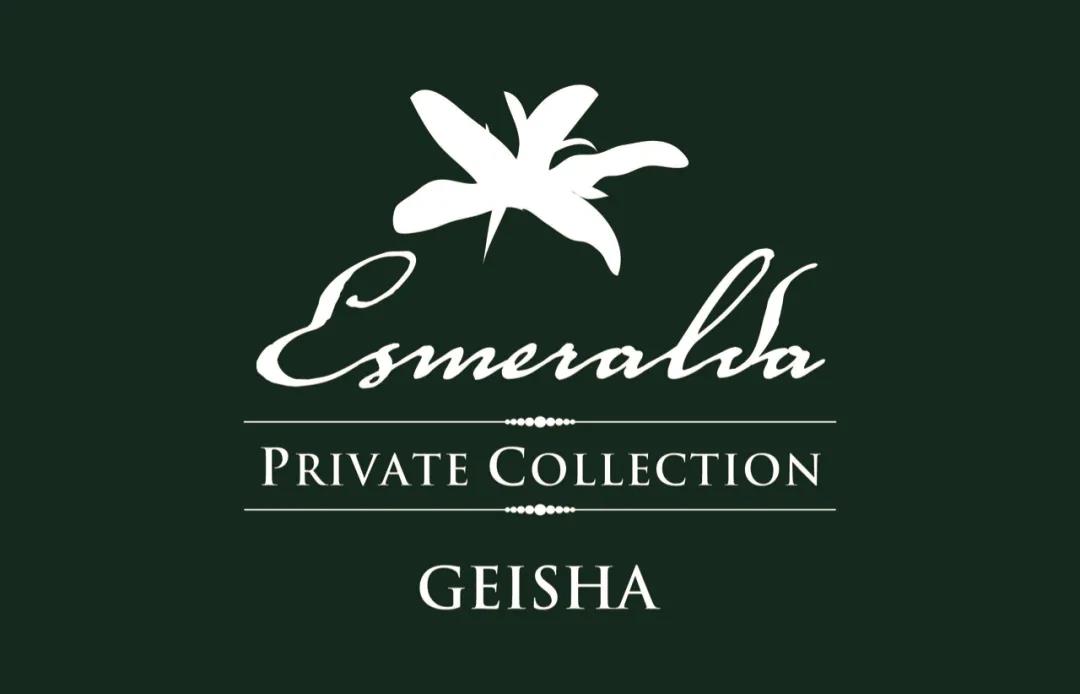
It is commonly known as the green mark. The green bid batch does not participate in the bidding, but the quality is still excellent. Green label batch Rosa rugosa is planted at an altitude of 1600-1800 meters above sea level, which is mainly produced in different lots such as Jaramillo, Canas Verdes and so on.
Because the mode of mixing different plots is adopted, sometimes the flavor similarity between green mark and red mark is very high. Although the green standard is not as high as the red standard, it still has the classic flavor of Rose Summer, floral, fruity, sour citrus, thick and juicy taste. Green-label batches of rose summer are also washed or treated in the sun.
Qianjie Coffee Panamanian Emerald Manor Green label Rose Summer Coffee beans
Producing area: Pocket Manor: Jade Manor elevation: 1600m-1800m Variety: Rosa treatment: washing
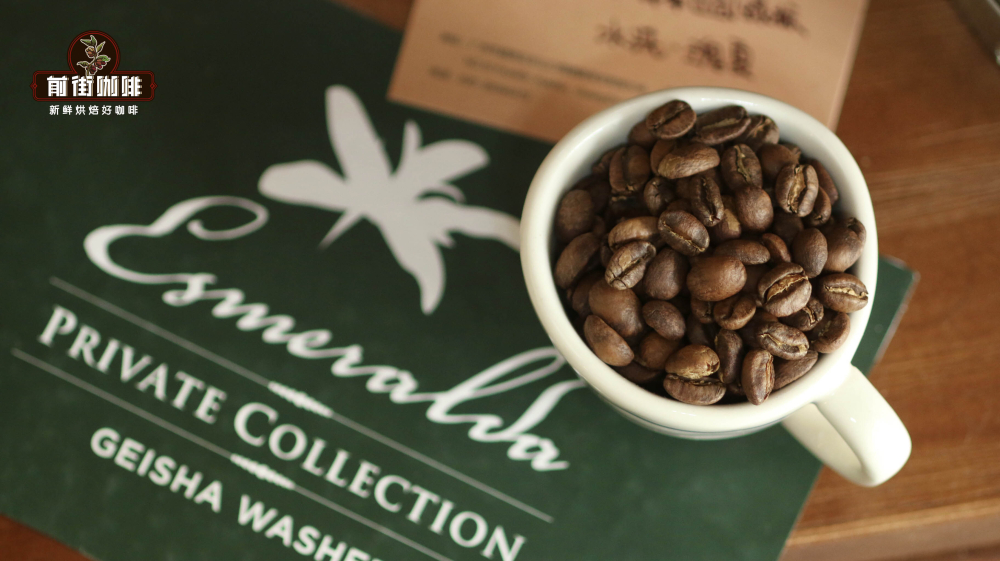
Qianjie coffee extension reading
People often ask what is the difference between a red sign and a green one. Qianjie Coffee gives the most easy-to-understand answer: which small plot of land can be traced back to the red mark, while the green mark is that the mixed beans are untraceable. Because the mode of mixed beans is adopted, it is not specified in detail on the plot, so sometimes the flavor of the green mark is very similar to that of the red mark, but the next product may be different. Qianjie coffee feels like buying a lottery ticket. Maybe the batch you drink this time is the taste of the red mark.
Although the green standard is not as high as the red standard, it still has the classic flavor of Rose Summer, floral, fruity, sour citrus, thick and juicy taste. The green sign of rose summer is also washed or tanned.
[Qianjie Coffee Panamanian Jade Manor Red label and Green label Coffee Bean brewing parameters]
The recommended brewing parameters for Qianjie coffee are: Hario V60 filter cup, 90 ℃ water temperature, 15 g powder quantity, 1:15 powder-water ratio, fine grinding (80% pass rate of Chinese standard No. 20 sieve).
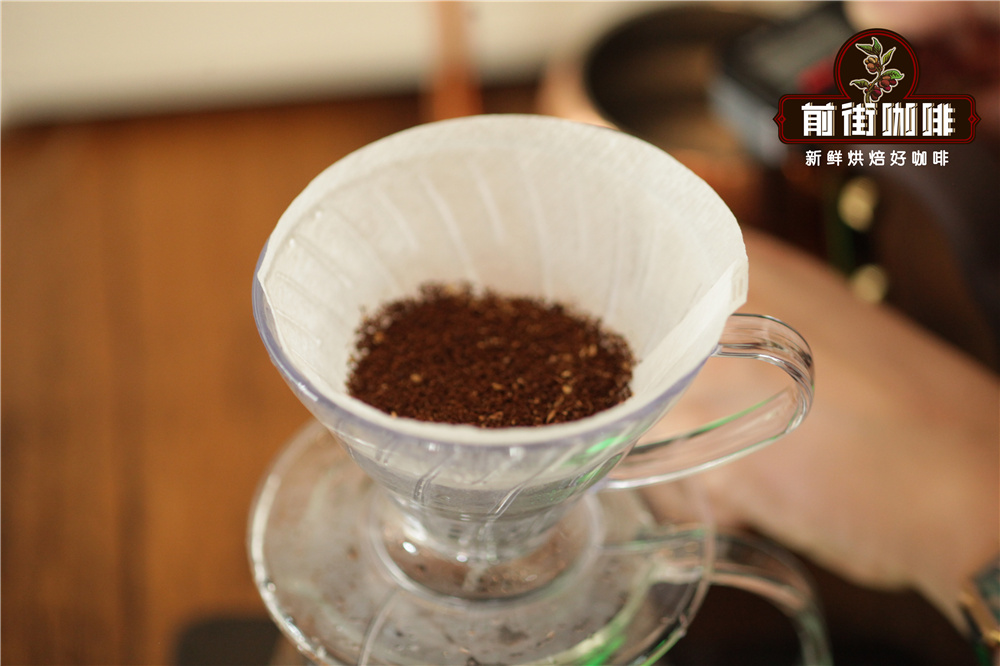
Grinding this piece, the front street is determined by screening this method, according to the grinding advice provided by the American boutique coffee association SCA for hand-made coffee, and then combined with the actual operation verification, using different grinding degrees to brew, the finished products have a significant gap, and the grinding degree of each coffee bean will be different, this is the significance of screening. If you don't have a sieve at home, Qianjie Coffee suggests observing the speed of the water to judge that if the flow is too fast, it is coarse, and if the flow is too slow, it is fine.
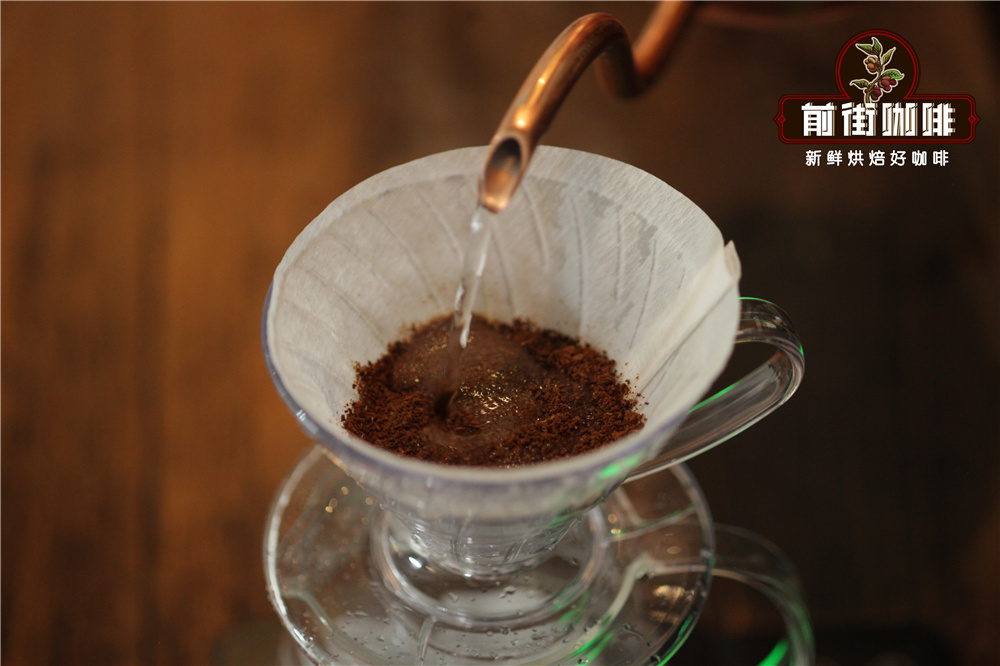
Qianjie coffee is extracted by stages, also known as three-stage brewing. Steam with 30 grams of water for 30 seconds, small water flow around the circle to 125 grams for sectional injection, water level drop is about to expose the powder bed, continue to inject water to 225 grams to stop injection, and so on when the water level drop is about to expose the powder bed, remove the filter cup, (steaming starts timing) the extraction time is 2 minutes 39 percent 00 ".
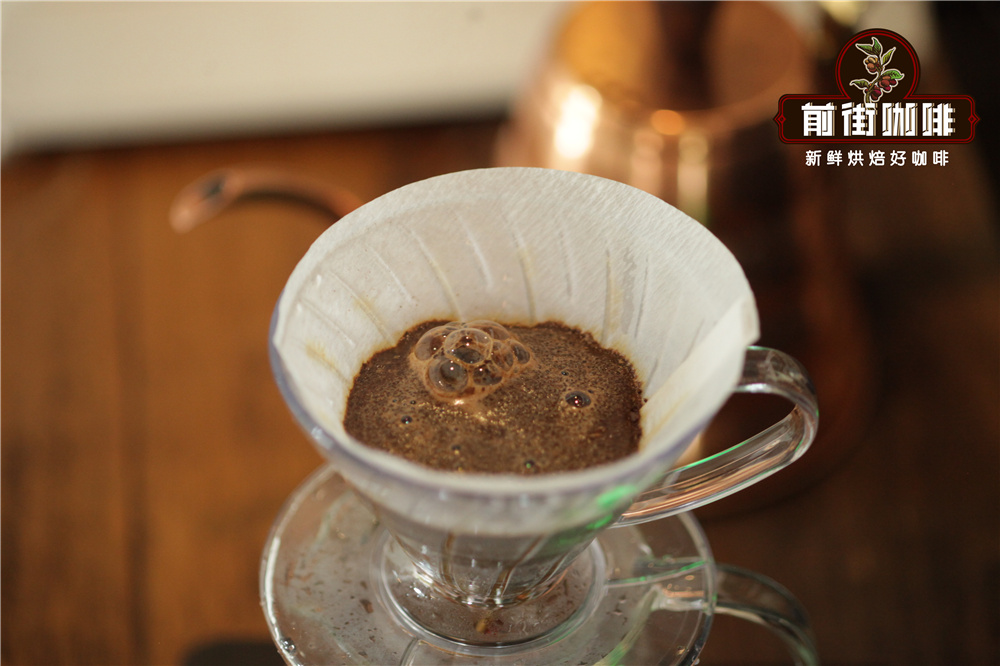
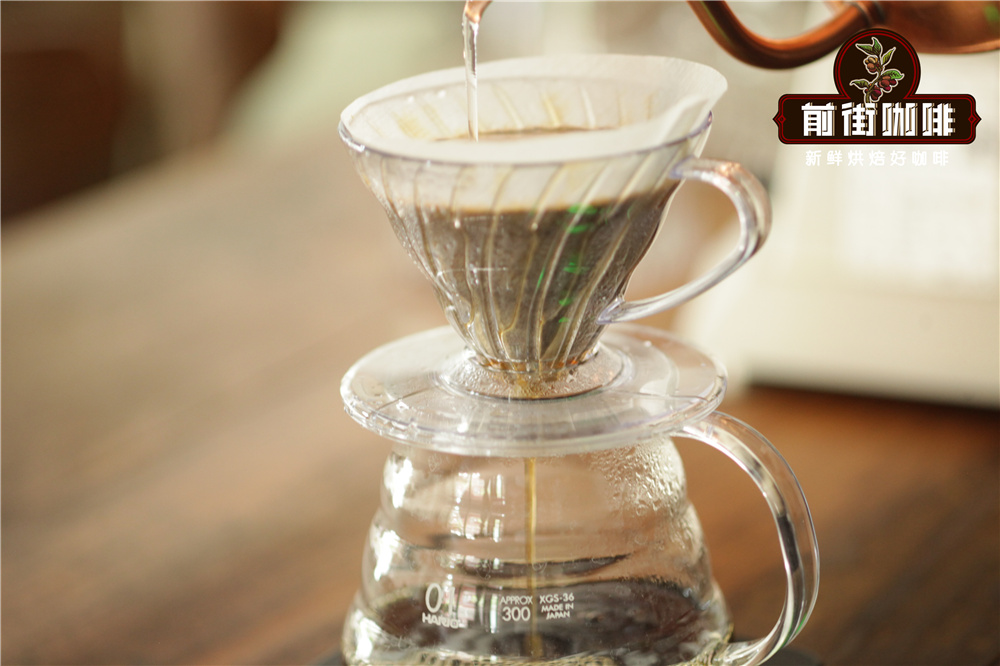
Qianjie Coffee Panamanian Emerald Manor Red Standard Rose Summer Coffee Bean Flavor describes bright roses, citrus aromas, black rice, berries, apricots, compound fruits and honey, with a thick sense of juice, rich flavor layers and obvious sweetness. Qianjie Coffee Panamanian Jade Manor Green label Rose Summer Coffee Bean Flavor description jasmine fragrance, high sweetness, citrus, berry, juice, cream, green tea, orange peel, cantaloupe, the overall flavor is rich, aftertaste, citrus lasting.
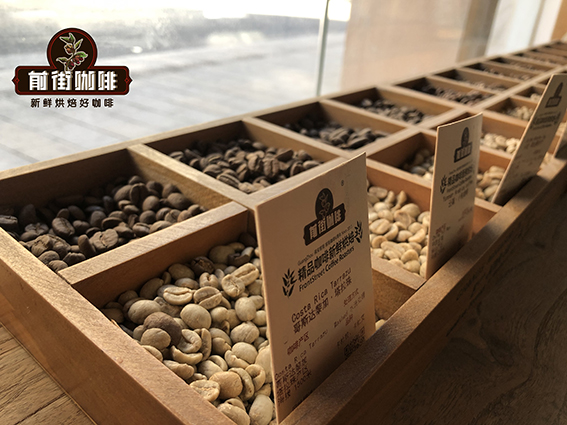
For more information about coffee beans, please follow the coffee workshop (Wechat official account cafe_style) and exchange professional coffee knowledge. Please add WeChat kaixinguoguo0925.
Important Notice :
前街咖啡 FrontStreet Coffee has moved to new addredd:
FrontStreet Coffee Address: 315,Donghua East Road,GuangZhou
Tel:020 38364473
- Prev

Colombia Huihuilan Coffee Bean Flavor Description Taste Variety Production Area Processing Method Grinding Scale Introduction
Colombia Huihuilan Coffee Bean Flavor Description Taste Variety Area of Origin Treatment Method Grinding Scale Introduction In Colombia's coffee bean classification system, super (supremo ) is the highest grade, is the largest and most plump of Colombia coffee beans, the content of defective beans and impurities is very small; and excellent (excelso ) is the beans smaller, more ordinary grade. Colombia
- Next

Introduction to the quality of grinding scale of Honduran coffee beans by description of taste and flavor
The taste and flavor description of Honduran coffee beans the quality of grinding scale introduces that high-quality coffee in Honduras uses water washing to deal with coffee beans, usually after soaking, when soaking, the defective fruit will surface and can be discarded first. Then put the good fruit into the fruit peeling machine and peel off the peel with the rotating force of the machine. Peeled fruit
Related
- Detailed explanation of Jadeite planting Land in Panamanian Jadeite Manor introduction to the grading system of Jadeite competitive bidding, Red bid, Green bid and Rose Summer
- Story of Coffee planting in Brenka region of Costa Rica Stonehenge Manor anaerobic heavy honey treatment of flavor mouth
- What's on the barrel of Blue Mountain Coffee beans?
- Can American coffee also pull flowers? How to use hot American style to pull out a good-looking pattern?
- Can you make a cold extract with coffee beans? What is the right proportion for cold-extracted coffee formula?
- Indonesian PWN Gold Mandrine Coffee Origin Features Flavor How to Chong? Mandolin coffee is American.
- A brief introduction to the flavor characteristics of Brazilian yellow bourbon coffee beans
- What is the effect of different water quality on the flavor of cold-extracted coffee? What kind of water is best for brewing coffee?
- Why do you think of Rose Summer whenever you mention Panamanian coffee?
- Introduction to the characteristics of authentic blue mountain coffee bean producing areas? What is the CIB Coffee Authority in Jamaica?

